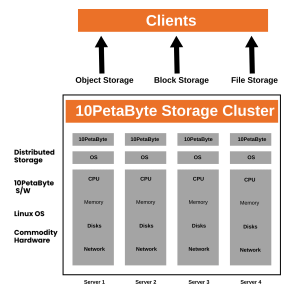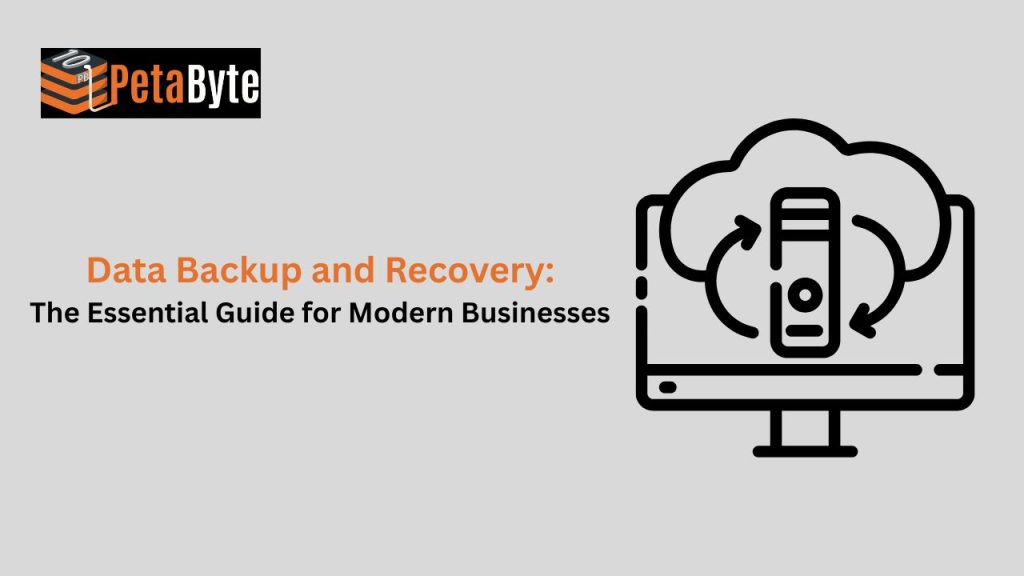Introduction: Why You Can’t Ignore Data Backup and Recovery
As we move into an increasingly digital-first world, data is now your most important asset. Losing your data—whether due to accidental deletion, ransomware attacks, or hardware failure—can cripple your business. This is where a solid 10PB backup and data recovery strategy becomes crucial—one that will ensure your crucial information is always secured, accessible, and restorable.
What is data backup?
Data backup is the process of making duplicates of a file, document, or complete system in order to be able to recover them if the original files are lost.
Types of Backup:
- Full—a complete copy of all files
- Incremental – saves only what was changed since the last backup
- Differential—saves all that was changed since the last full backup
- Automated – runs on a schedule and does not require human input
Tip: You should always automate your backups to protect against human error.
What is Data Recovery?
Data recovery is the process of restoring lost, deleted, or corrupt files from a backup copy.

Data recovery can occur after:
- Accidental deletion
- Hard drive failure
- Cyberattack, i.e., Ransomware
- A natural disaster
Speed is important. The faster you recover, the quicker the interruption to your business.
Real Dangers of Not Having Backup and Recovery
Businesses without a credible data backup and recovery plan expose their organization to:
- Permanent loss of data
- Expensive downtime
- Ransomware lockouts
- Legal fines for non-compliance
- Damage to your reputation
Note: 60% of all small businesses shut down within 6 months of a major data loss.
Best Practices for Data Protection
Follow these expert-recommended best practices:
The 3-2-1 Backup Rule:
- 3 copies of your data
- 2 different types of media
- 1 copy stored offsite (in the cloud.)
Other best practices:
- Schedule automated backups daily
- Encrypt sensitive information
- Perform monthly recovery tests
- Use versioning to undo unintended changes
- Monitor data for ransomware patterns
Reasons Why Cloud Backups are a Game-Changer
Cloud data backup and recovery provides:
- Scalability as your data expands
- Convenient access from any remote location
- Offsite disaster protection
- Unified lower hardware and maintenance costs
- Quicker recovery from problems
Cloud is the future—especially for small and medium-sized businesses in India.
Future-Proofing with AI-Enabled Solutions
Modern backup tools now include AI capabilities:
- Predictive failure alerts
- Ransomware activity detection
- Instant file recovery
- Auto-scheduling backups
Smarter systems mean better protection and faster recovery.
Looking for Premium Services in Netforchoice
Industry Use Cases
See how various sectors rely on data backup and recovery:
Healthcare
Compliance (e.g., HIPAA), sensitive patient data
Enterprises
Massive data needs redundancy and automation
Education
Student records, remote learning files
Creative Agencies
Large media file protection, versioning
Ready to Protect Your Business?
Don’t wait for a disaster to take action.
With 10PB Cloud Storage, you get:
- Automated backup
- Secure Indian data centers
- Built-in ransomware protection
- Instant recovery
- 24×7 monitoring
Let us handle your data so you can focus on growth.
Schedule Your Free Backup Consultation Now »
Frequently Asked Questions (FAQs)
- What is the difference between backup and recovery?
- Backup is creating copies.
- Recovery is restoring the file that was lost.
- How often should data be backed up?
- Each day, or in real time for those files that are critical.
- Automate your backups so you do not have gaps in your backups.
- Can cloud backup offer protection from ransomware?
Yes, if the cloud backup offers versioning and secure snapshots, it returns data that is uninfected.
- Is local backup still useful?
Yes, for quick retrieval. However, you should always use a backup together with a cloud service for the most complete protection.
- What do I do if my backup fails?
If you are not testing backups, you have a good chance of losing data permanently. You should always test and regularly monitor your backup software.
Final Words: Prevention is Cheaper than Recovery
Data backup and recovery should be a non-negotiable part of your IT strategy. Whether it’s a ransomware attack, accidental deletion, or hardware crash—you need to be prepared.
The cost of not backing up your data is far greater than the investment in protecting it.
Let’s Talk!
Are you ready to safeguard your data with India’s most reliable cloud backup platform?
Start with a free assessment and see how 10PB can keep your business data safe, accessible, and recoverable—always.
Book a Free Demo 📧 Email Us Now: inquiry@10pb.com

